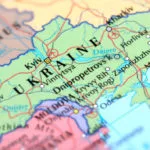
(NEW YORK) — Ukraine marked a milestone last week, hitting 500 days of combat between the sovereign nation and Russia. And for Andriy Yermak, President Volodymyr Zelenskyy’s Head of the Office, Ukraine’s resistance has carried global significance.
“Ukrainians during these 500 days showed to the world that good, in the end – I’m sure about it – will win,” Yermak told ABC News Chief Global Affairs Correspondent Martha Raddatz, who last week traveled to Ukraine, where she interviewed President Zelenskyy and Yermak, his right-hand man.
“We destroyed this myth about some very strong army of Russia, and all these [latest] things which happened to Russia show that Putin is weak, and his regime is weak,” Yermak said, referring to the recent success in the counteroffensive and turmoil between Putin and Wagner Group leader Yevgeny Prigozhin.
Yermak, 51, is a former entertainment lawyer and producer who met Zelenskyy while working in Ukraine’s entertainment industry. Now he runs Zelenskyy’s office, using his experience to bring a fresh approach to diplomacy.
In his role as Head of the Office, the former lawyer is trusted to oversee pivotal tasks for the Ukrainian military. Along with Zelenskyy himself, Yermak is often in constant negotiations for the equipment Ukraine’s military often asks the U.S. and other allies for. For years, Yermak has been the point person for negotiations between Moscow and Kyiv, though those chats are less frequent now.
While Ukraine continues its fight to reclaim pieces of its land in its counteroffensive, the operation has taken a grueling toll on the country. Military and civilian casualties have been substantial, and the war has not gone as quickly as some Western analysts had hoped.
“The Russians continue to destroy. It’s our cities. It [continues to be] very hard fighting in many directions in the frontline but [also] in other sides,” Yermak said. “We really show to all the world how we are fighting for the most important values. … It’s for freedom; it’s for independence; for our territorial integrity and sovereignty.”
Recently, the White House approved sending cluster munitions to Ukraine despite the weapons’ risk to civilians and the Convention on Cluster Munitions, an international treaty – which does not include the U.S., banning their use.
“I think we can all agree that more civilians have been and will continue to be killed by Russian forces — whether it’s cluster munitions, drones, missile attacks or just frontal assaults — than will likely be hurt by the use of these cluster munitions fired at Russian positions inside Ukrainian territory,” John Kirby, spokesperson for the White House National Security Council, said in an interview with ABC “This Week.”
Cluster munitions are fired on a position and drop explosive bomblets (artillery shells that dispense smaller explosives known as “bomblets”) over a wider area. In the past, unwitting civilians have stumbled upon some of those bombs that did not explode on impact. These bombs can essentially turn into landmines, posing a danger to the general public.
President Zelenskyy and Yermak defended America’s decision to send the munitions as crucial to Ukraine’s war effort.
“When we ask something, we show the results,” Yermak told ABC News. “We showed the results, how we use this equipment, how we use [these] weapons – and of course, now we need it to win this war.”
Yermak was also asked about the North Atlantic Treaty Organization (NATO), and he told Raddatz the majority of his fellow citizens want to be part of the pact.
“The last figures showed that about 90% of Ukrainians want to be in NATO. It’s the highest figures during all the history of independent Ukraine,” he said.
“I hope that it will be, in the end of these consultations, will be really historical decisions,” Yermak said, with hopes of Ukraine someday joining NATO.
With the 500th day of the war with Russia marked on the Russian side by what Russian President Vladimir Putin called a “special military operation,” the support of the U.S. is not something Yermak takes for granted.
“I’m never tired to say, ‘Thank you very much. … [We are] not just partners; we are friends; we are brothers and sisters.”
And despite the challenges ahead for Ukraine, Yermak is ready to face them with the life philosophy of President Zelenskyy: impossible things don’t exist.
“Ukraine many times shows that impossible [is] possible.”
ABC News’s Tal Axelrod contributed to this reporting.
Copyright © 2023, ABC Audio. All rights reserved.
